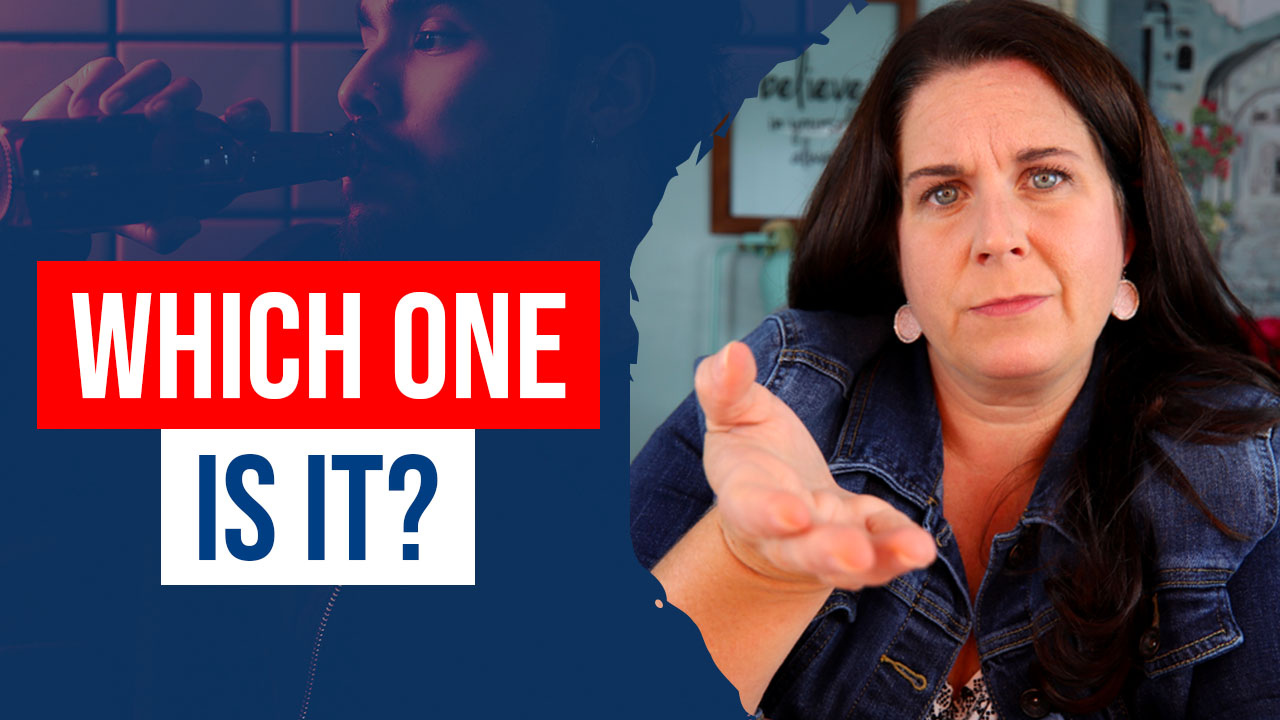Is It Borderline Personality Disorder or Addiction? (or both?)
Is it Borderline Personality Disorder or Addiction?
Borderline personality disorder and substance use disorders frequently occur together, and there's a lot of overlap in symptoms.
How do you pull the pieces apart to see if you're dealing with addiction or borderline personality disorder?
Symptoms of Borderline Personality Disorder
You'll see frantic efforts to avoid reality or imagined abandonment. You're going to see a pattern of intense and unstable emotions. People with a borderline personality disorder often engage in dangerous impulsive acts like binge eating, reckless driving, excessive shopping, unsafe sex, and substance use disorders. You may also see self-harming behaviors and recurrent suicidal ideation. You'll see intense mood swings in someone with borderline personality disorder, and they'll often struggle with feelings of emptiness.
People with BPD may demonstrate inappropriate, very intense anger and sometimes feel disassociated from themselves and the world around them.
The similarities between BPD and Addiction
I could take any of these and throw them right into the symptoms of what it looks like when someone struggles with a substance use disorder.
The same symptoms you see in BPD like intense mood swings, impulsivity, empty feeling, dissociation, and moodiness overlap, which is why it can be challenging to pull these two diagnoses apart.
What symptom(s) to look for in Addiction
If you're trying to figure this out for yourself or someone you care about, there's one key symptom in here that I want you to pay close attention to. That symptom is the frantic efforts to avoid real or perceived abandonment.
Someone with an addiction will have frantic efforts to avoid not having the substance, but not necessarily the abandonment. Now it could get a little confusing here because sometimes someone that has a substance abuse problem might try to make you feel guilty and say, you're abandoning me.
For example, if you won't give them money for the substance. That behavior is manipulation, and it's about getting the drug, not necessarily about the relationship.
Look for this CLUE!
The biggest question you can ask yourself to help you figure this out is to think about what you or your loved one was like before addiction came into play.
Did they have all these symptoms in place from young adulthood even before the addiction, or do the symptoms start to show themselves most when they're in an active, addictive state? That will give you a huge clue on whether or not someone has just borderline personality disorder, substance use disorder, or sometimes both.
Someone with a substance use disorder and borderline personality disorder will likely use the substance to emotionally regulate.
Why might it be challenging to figure out what you're dealing with? The answer to that is treatment and outcome. If you're dealing with these behaviors and they're related to substance abuse, once you treat the substance abuse problem, most of these behaviors will go away or at least very much stabilize.
If you're dealing with someone who has a borderline personality disorder and you get the substance abuse stabilized, but you haven't dealt with the borderline personality disorder, then you will still see a lot of the symptoms.
Ask yourself this question. "Are these behaviors a reflection of the substance? Or is the substance use reflection of these behaviors?"
Treatment Options
Your next question might be, what kind of help do you get for someone who has a borderline personality disorder and or substance use disorder?
There are tons of videos on my channel about getting help for substance use disorders. But there is help that someone with borderline personality disorder might want to look into. Namely, there's a type of specific therapy called D B T. That stands for dialectical behavior therapy.
If you're looking for help for yourself or a loved one, a wonderful place to get started is through Better Help. Better Help has more than 20,000 therapists worldwide, which is one of the things that makes them so easily accessible. Timing is everything. The last thing you want to do is start calling around to all the different therapist practices and waiting for weeks to get a callback. Don't forget to use this link to get an extra 10% off.
We went through all the criteria for borderline personality disorder, and I'm guessing you have a pretty good general understanding of the criteria for substance use disorder. Just in case you don't, watch this video next. I go through all of the criteria for alcoholism. If you're thinking to yourself, maybe the problem isn't alcohol. These are the same criteria for any addiction. For all substance use disorders, you can replace the word alcohol with any other drug insert name, and you still have the same criteria.
Amber Hollingsworth


